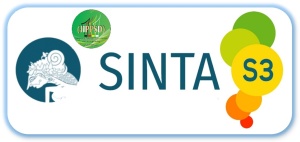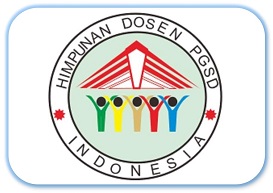PENGARUH STRATEGI GENIUS LEARNING DAN DISPOSISI MATEMATIS TERHADAP PEMAHAMAN KONSEP KELAS V SEKOLAH DASAR
 ),
), (1) PGSD FKIP Universitas PGRI Palembang, Kota Palembang, Indonesia
 Corresponding Author
Corresponding Author
DOI : https://doi.org/10.24036/jippsd.v1i2.8616
Full Text:
 Language : en
Language : en
Abstract
This study was aimed at determining: (1) the effect of Genius Learning strategy toward concept understanding compared with conventional; (2) the effect of Genius Learning strategy towards concept understanding with high mathematical disposition compared with conventional; (3) the effect of Genius Learning strategy towards concept understanding with low mathematical disposition compared with conventional; (4) the interaction between learning strategy and mathematical disposition in influencing concept understanding. This study was designed as quasi-experimental research by using a 2 x 2 factorial. The data were obtained by using mathematical disposition questionnairesand concept understanding test. Data were analyzed by using t-test and Anova.The result of the data showed that: (1) understanding of the concepts taught by Genius Learning strategy was higher than conventional; (2) understanding of the concepts with high mathematical disposition taught by Genius Learning was higher than conventional; (3) understanding of the concepts with lower mathematical disposition taught by Genius Learning was higher than conventional; (4) There was no interaction between learning strategies andthemathematical disposition in influencing students’ understanding of the concept.
Keywords: Concept Understanding; Mathematical Disposition; Genius Learning
References
Arnidha, Y. (2013). Efektifitas Model Kooperatif Think Pair Share Terhadap Kemampuan Pemahaman Konsep dan Disposisi Matematis Siswa. Tesis Tidak Dipublikasikan. Jakarta: Universitas Terbuka.
Ary, D. (1982). Pengantar Penelitian dan Pendidikan, Surabaya: UsahaNasional
Depdiknas. (2001). Penyusunan Butir-butir Soal dan Instrumen Penelitian. Jakarta: Depdiknas.
Fadjar, S. (2009). Kemahiran Matematika. Yogyakarta: Depdiknas.
Gunawan, A. W. (2012). Genius Learning Strategi Petunjuk Praktis untuk Menerapkan Accelereted Learning. Jakarta: Gremedia Pustaka Utama.
Katz. L.G. (1993). Dispositions as Educational Goals. New York. Forguson.
Kesumawati, N. (2010). Peningkatan Kemampuan Pemahaman, Pemecahan Masalah dan Disposisi Matematis Siswa SMP Melalui Pendekatan 79 Pendidikan Matematika Realistik. Disertasi tidak diterbitkan. Bandung: Doktor pada SPs UPI.
Khairani, M.L dan Sari, R.F. (2014). Strategi Genius Learning dalam Pembelajaran Matematika. Medan: Fakultas Ilmu Tarbiyah dan Keguruan IAIN Sumatera Utara.
Maxwell, K. (2001). Positive Learning Dispositions in Mathematics. New York: Macmillan International.
National Council of Teahers of Mathematic. (2002). Currikulum and Evaluation’s Standards’ for School Mathematics. Reston, Virginia: NCTM.
Sanjaya, W. (2011). Strategi Pembelajaran Berorientasi Standar Proses Pendidikan. Jakarta: Kencana.
Sugiyono. (2012). Metode Penelitian Pendidikan Pendekatan Kuantitatif, Kualitatif, dan R & D. Bandung: Alfabeta
Sudjana. (2002). Metode Statistika. Bandung: Tarsito.
Sumarno, U. (2013). Berfikir dan Disposisi Matematika serta Pembelajarannya. Bandung : Univ. Pendidikan Indonesia.
Suryabrata, S. (2006). Metode Penelitian. Jakarta: Raja Grafindo Prasada.
Van De Walle, J. A. (2008). Matematika Sekolah Dasar dan Menengah Pengembangan Pengajaran. Jakarta: Erlangga
 Article Metrics
Article Metrics
 Abstract Views : 703 times
Abstract Views : 703 times
 PDF Downloaded : 184 times
PDF Downloaded : 184 times
Refbacks
- There are currently no refbacks.







